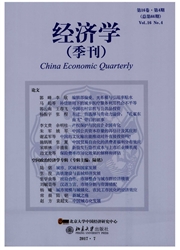

 中文摘要:
中文摘要:
本文构建了中国上市公司治理指数,以截至2006年7月31日已经完成股权分置改革(以下简称股改)的890家公司作为研究样本,考察了在股改对价的确定过程中,流通股东是否考虑了公司治理水平的因素。研究结果发现:公司治理水平高的公司,流通股股东会要求较低的对价水平;同时,对于大股东和机构投资者降低对价水平,侵害中小投资者利益的“合谋”行为,公司治理水平高的公司能够显著地降低这种“合谋”带给中小投资者的不利影响。本研究的结论和文献一致,公司治理能够降低对中小股东的剥削,投资者能够对公司治理进行适当的定价。
 英文摘要:
英文摘要:
Based on data of 890 firms undertaking the splitting-share reform from May 9, 2005 to July 31, 2006, we examine the relationship between corporate governance and the compensation ratio used in the reform, and find that better corporate governance leads to lower compensation ratios. Prior evidence suggests that institutional investors don't represent the interests of owners of circulating shares, but are more likely to collude with owners of non-circulating shares. Starting from this point, we examine the relationship among corporate governance, institutional investors and the compensation ratio, and find that good corporate governance prevents the collusion of institutional investors and owners of non-circulating shares.
 同期刊论文项目
同期刊论文项目
 同项目期刊论文
同项目期刊论文
 期刊信息
期刊信息
